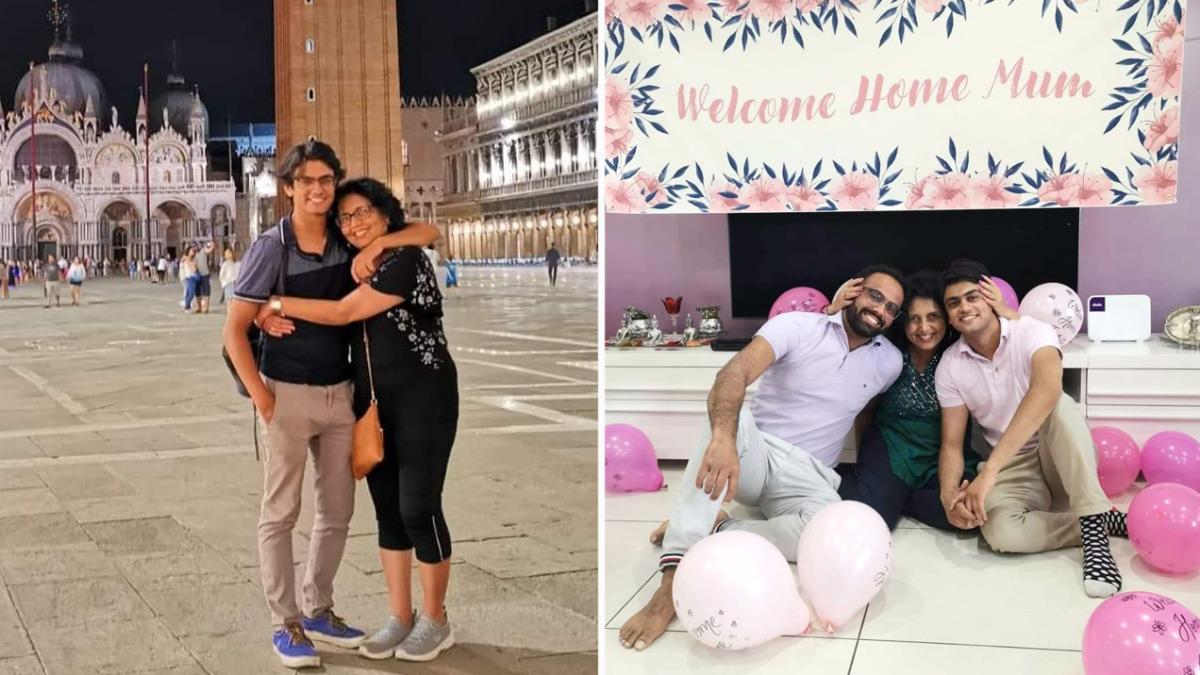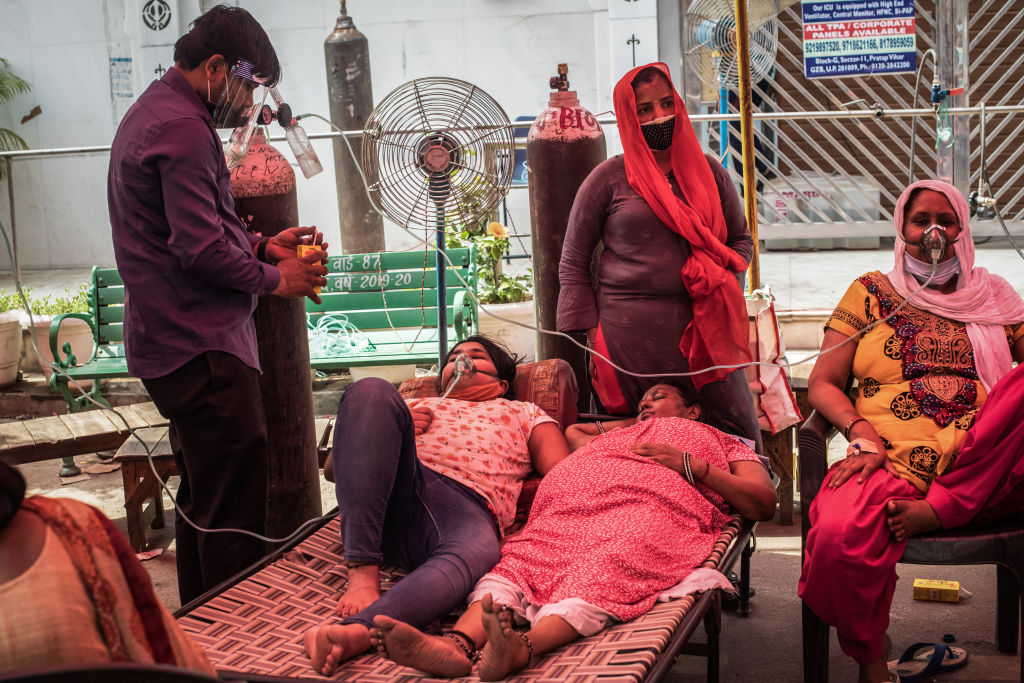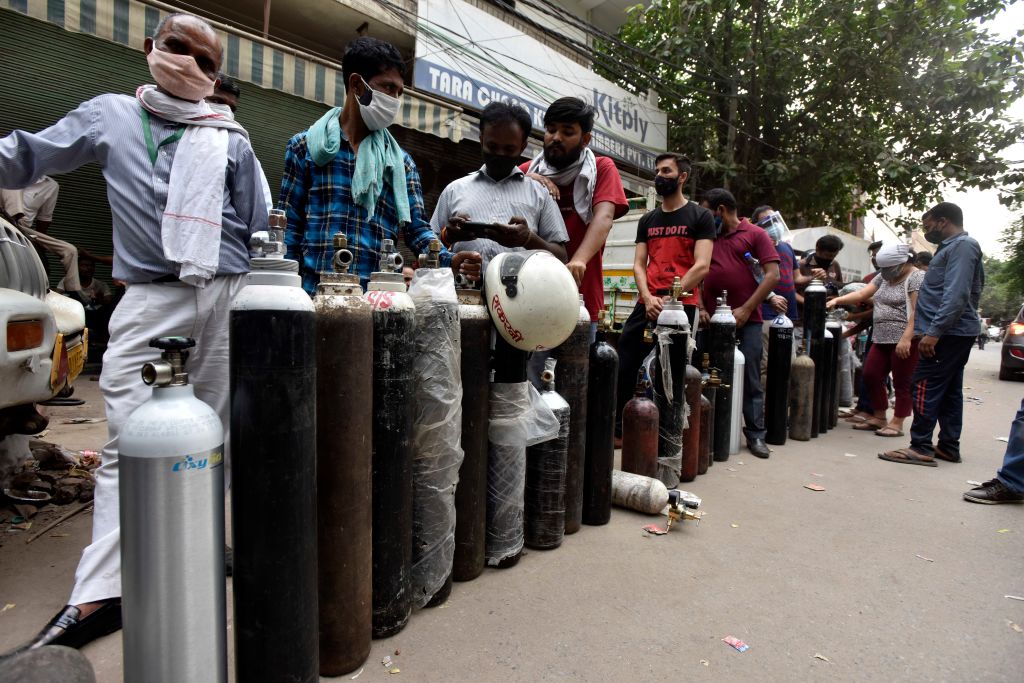
I remember receiving the call late at night at the office last year from the Australian High Commission. After months of trying, there was one seat available on a flight the next day to bring mum home from India. I remember telling the rest of the family and, we all just broke down. Quiet, relieved sobs echoing through the receiver. Our nightmare was finally coming to an end.
This was before India’s deadly second wave. Before the stories of oxygen shortages, overflowing hospitals and mass cremations. Even then, we were still stressed every single day about how mum would be able to protect herself. Even then, we had to wait months before we could bring her home.
Yet the stress we went through is nothing compared to the trauma, heartache, uncertainty, fear and frustration that families with relatives stranded in India would now be feeling. Without having experienced it, it might be difficult for the general public to understand what that feels like.
Put it this way – families of stranded Australians are watching daily scenes of people screaming in hospital halls for basic medical supplies. Where there are people all over the country dying from not receiving oxygen. These Australian families live with the reality that if even one of their Australian relatives require hospitalisation in India, there is a strong chance that they will not get a bed, let alone basic oxygen and could die in the space of days, if not hours.
For stranded Australians, every second they spend in India exposes them to a genuine risk of death. To those Australians, our government has slammed the door shut. Where Scott Morrison once promised to bring Australians home by Christmas, he has now effectively promised that they will be jailed for trying.

There will be time enough to ask questions as to why such a complete ban was implemented with such speed for Australian-Indians but never contemplated for other Western countries who have gone through second and even third waves of the virus – though I believe there is a fairly obvious answer to that.
My immediate concern lies with the question of citizenship and residency. At its most basic level, the government has the responsibility to protect its citizens, both at home and abroad. In a pandemic which has lasted more than a year, it is not good enough to argue that our hotel quarantine system is not equipped to deal with international outbreaks of the virus. We have had more time and resources than almost any other country to get this right and prioritise bringing our citizens home safely. The fact it took people like my mum over six months to come home before the latest Indian outbreak should tell you that our hotel quarantine has failed our citizens. Indeed, Australian citizens have been left to their own devices whilst trying to escape, to the extent where citizens have had to organise their own charter planes and pilots to try and get home. If the policy fix to new outbreaks of the virus is going to be a policy of abandonment of our citizens, we should consider that a national shame.

The counter to this is to say that the government has an obligation to protect Australians at home, too. This is true. No one denies this. But is stopping flights from India going to stop COVID cases from occurring in hotel quarantine? No. And let’s not forget, this is exactly what hotel quarantine is for. There are certain risks we must take if it means rescuing our citizens from one of the most deadly situations on earth. We’ve done it before for natural disasters and diplomatic crises. We must do the same here. It is a duty of government.
Beyond all this, even if you are unconvinced by these arguments, I ask Australians to show more empathy and heart. The chastising of Australians from being overseas in the first place is scapegoating at its worst. This is not the failure of individuals. If our government has not been able to set up a system to bring home its own citizens in more than a year, it is nothing short of a government failure and the responsibility of the national cabinet to resolve immediately. Most citizens have been trying to get home for months, if not for a year. We must remember that India’s restrictions on outgoing flights combined with Australia’s cap on arrivals make escaping India an extremely difficult task, and that is something I can speak about from experience.

If nothing else, I ask you to at least spare a thought for those families who are now completely helpless, abandoned and with no chance to be rescued. Who have no other choice but to wait with endless anxiety. Who, at least for now, have no hope to receive that call all the families of stranded Aussies have been yearning to receive.
Khushaal Vyas is a young lawyer. He was awarded the NSW Premier’s Multicultural Youth Medal and selected as an Australia Day Ambassador since 2017 for community work and multicultural advocacy. His lifelong ambition, as yet unfulfilled, is to stand up to the seagulls who keep stealing his lunch.



